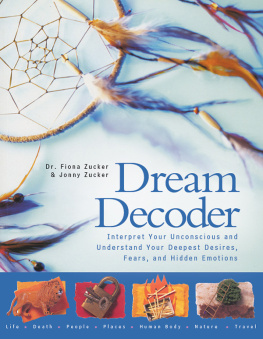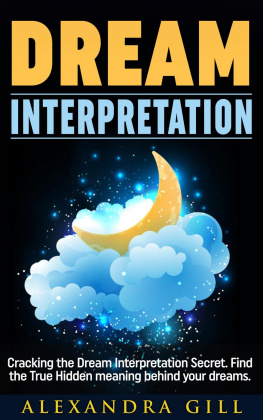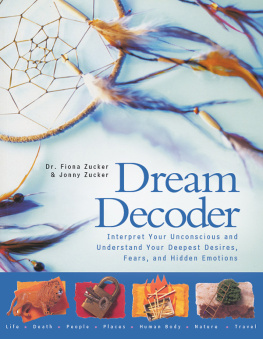
This book produced by
Quantum Publishing Ltd
6 Blundell Street
London N7 9BH
Copyright 2000, 2003 by Quarto Publishing plc
This edition printed 2014 by Skyhorse Publishing, Inc.
All Rights Reserved. No part of this book may be reproduced in any manner without the express written consent of the publisher, except in the case of brief excerpts in critical reviews or articles. All inquiries should be addressed to Skyhorse Publishing, 307 West 36th Street, 11th Floor, New York, NY 10018.
Skyhorse Publishing books may be purchased in bulk at special discounts for sales promotion, corporate gifts, fund-raising, or educational purposes. Special editions can also be created to specifications.
For details, contact the Special Sales Department, Skyhorse Publishing, 307 West 36th Street, 11th Floor, New York, NY 10018 or .
Skyhorse and Skyhorse Publishing are registered trademarks of Skyhorse Publishing, Inc., a Delaware corporation.
www.skyhorsepublishing.com
10 9 8 7 6 5 4 3 2 1
Library of Congress Cataloging-in-Publication Data is available on file.
ISBN 978-1-62914-178-7
eISBN 978-1-62914-292-0
Printed in China
CONTENTS






WORLD OF DREAMS

Our dreams can differ from our real lives in many ways. In our dreams we may see and hear things that seem normaland react to them bizarrely; or we may dream without embarrassment of things that we would consciously find shocking. There is no single explanation of why we dreamor of why we sleep. A multiplicity of physiological and psychological theories of sleep and dreaming have been proposed from the beginning of history to modern times.
NIGHT AND DAY

Sleep is such a regular part of our lives that we rarely consider its nature. When we do stop to think about it, the act of sleeping can seem puzzling. While asleep, we lose consciousness and abandon control of our movements and thoughts. If such an experience were to occur during our waking lives, it would be frightening, yet we endure this process every night. We do know, however, that lack of sleep is detrimental to our health: it causes fatigue, poor concentration, and extreme emotions.
Sleep cycles
Modern sleep analysis began nearly 50 years ago. Interest grew when it was discovered that sleep consists of clearly differentiated phases. These can be determined by the observation of brain waves and general physiological activity. During an average nights sleep, four phases of sleep occur. The cycle of movement from phase one through phase four usually happens about seven times a night. Each cycle lasts approximately 90 minutes.
The four phases
In phase one of the sleep cycle, the sleeper moves from wakefulness to sleep. Phase two marks the beginning of actual sleep, where the sleeper is unaware of outside stimulation. Phase three is a gradual continuation of the transition into deeper sleep. In the final phase, phase four, we sink into an even deeper level of sleep. During this phase, the sleeper breathes more rhythmically and deeply. Heart rate and blood pressure drop, the metabolism slows, and the electrical activity of the brain is different from its waking state. When phase four is complete, the sleeper moves back through the phases, and the physiological changes are reversed: the pulse beats faster and less regularly, the metabolism and electrical activity return to their waking state, the blood pressure increases, the body often moves, and a penile or clitoral erection can occur. As these reverse changes happen, the sleeper seems to be on the verge of wakingyet it is, paradoxically, harder to wake someone at this point than during the deep level of phase four.
REM sleep
Phase four is also known as rapid eye movement, or REM, sleep. This describes the process whereby the eyes dart rapidly from side to side under closed eyelidsand it marks the onset of dreaming. Dreams can happen in phases one, two, or three of the sleep cycle, but they are less frequent and not as vivid as those occurring in REM sleep. It is hypothesized that the rapid movements of the eye may actually represent the dreamers observation of the events that are taking place in the dream.
In 1953, the American physiologist Nathaniel Kleitman and his student Eugene Aserinsky pioneered a clinical study of dreaming. They discovered that if a sleeper was awakened during the time when the electrical impulses of the brain exhibited certain rhythms, he or she reported dreaming at that time. The periods of brain activity and dreaming also corresponded with the occurrence of rapid eye movements. These discoveries marked the beginning of an intense period of study of dreaming and dream patterns.
Why do we sleep?
Aristotle believed that during sleep the body emitted certain vapors, which helped disperse food from the stomach to the rest of the body. In a similar vein, some researchers in the early 20th century maintained that chemicals such as carbon dioxide, cholesterol and lactic acid collect in the brain during waking hours, and sleep provides an opportunity for these chemicals to be redistributed throughout the body.
Another popular theory postulated that sleep was merely a means of regaining energy. It seemed unlikely, however, that this explanation was complete, as it failed to account for the evident need for REM sleep in particular. Newborn babies, for example, spend about half of their sleeping time in the REM state; evidence of an REM state has also been observed in most mammals, birds, and reptiles. Further, experiments have shown that people deprived of REM sleep become excessively sensitive, lose the ability to concentrate, and suffer poor recall. In contrast, those deprived of non-REM sleep experience fewer and shorter-term difficulties. It thus appears that in non-REM sleep, the body and mind are resting and regenerating. REM sleep, on the other hand, seems to be less physiologically but more psychologically important.
The nature of dreams
Despite the large body of research into sleeping patterns, the human need to dream continues to evoke more questions than answers. Are dreams a way to dispel unwanted waking experiences? Are they a means of processing daily events? Or are they an exercise for a part of the brain that remains dormant during the waking hours?





















